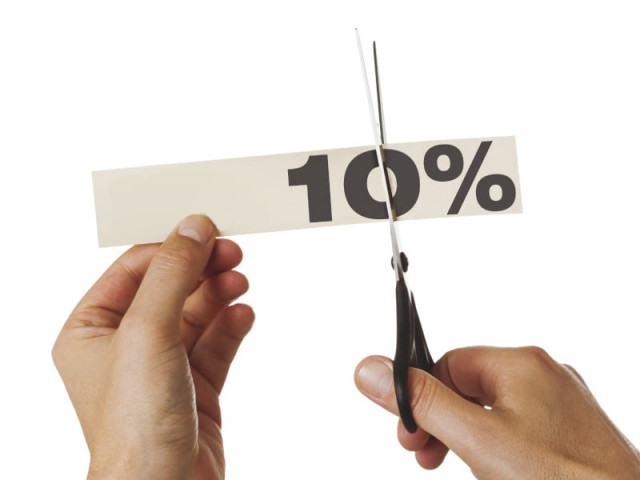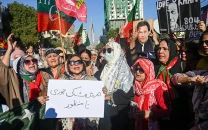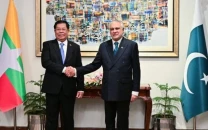Lowest in six years: Central bank cuts interest rate to 9.5%
Despite low interest rates, investors unwilling to invest ahead of elections, say analysts.

In the wake of a persistent decline in inflation, the State Bank of Pakistan (SBP) has cut interest rates by 50 basis points (bps) to bring it down to 9.5% – lowest in six years – with effect from December 17, 2012.
The central bank’s monetary easing cycle has contributed a cumulative reduction of 450 bps in the discount rate since the first half of fiscal 2012.
“The decline in inflation has been considerably faster than earlier estimates,” the monetary policy statement released by the central bank said. “This broad based deceleration in inflation is now expected to keep the average inflation for the fiscal 2013 below the 9.5% target for the year.”
Giving the reasons of decline in inflation, the statement said that the availability of food supplies has been better this year compared to the last two.
Sharply decelerating inflation is a reflection of these conditions, it said, adding that therefore, the SBP had decided to reduce the policy rate.
The year-on-year consumer price index (CPI) inflation for November 2012 stood at 6.9%, with food inflation dropping to 5.3% and non-food inflation down at 8.1%. Even the core inflation measures were in single digits, it said.

While commenting on the cut, Akbar Zaidi, an economist said that inflation was continuously falling and it was expected that the central bank will go for this decision.
However, the central bank said that the state of credit to private businesses was not encouraging despite a cumulative 400 bps reduction in the policy rate over the last 16 months.
The detailed disaggregated data shows a contraction of Rs39.6 billion in credit lending to the private sector during the first four months of fiscal year 2012-13, with most of the contraction taking place in the manufacturing sector.
Pointing out the dismal state of credit to private businesses, Zaidi said that people were opting for the wait-and-see policy and were not investing presently mainly due to the upcoming general elections.
“Investors are waiting for the next government,” he said, “They think the new government will bring more pro-business policies compared to the current coalition government.”
While there is some seasonal pick up since mid-October onwards, the outlook for the year was not encouraging. The reason, as highlighted by the SBP earlier, was that the expected support to the SBP’s initiative in the shape of improvement in the availability of energy and reduction in fiscal borrowing needs had not come through yet. Thus, both the demand and supply of credit to the private sector remain sub-optimal, the statement said.
The consistently low level of credit availed by the private sector together with declining foreign investments were the main factors responsible for a stagnant economy, it said.
Resultantly, the output gap – the difference between aggregate demand and the ability of the economy to meet this demand – is now almost negligible.
Khurram Schehzad, head of research at Arif Habib Corporation said, “The cut in monetary policy is good but it is coming at a time when other important factors for investment are not attractive.”
The central bank’s argument that despite reduction of 400 bps in the last 16 months, private sector credit growth is not picking up was unjustified.
“With severe energy shortages and persistent security issues in the country, investors are clearly reluctant to invest right now despite considerable cut in interest rates,” said Schehzad.
Considering issues other than high interest rates, he said, “I do not think people will invest unless the central bank brings interest rates down to at least 6% or 7%. Yes, if there were no energy and security issues, private sector may start investing in current high interest rates.”
Published in The Express Tribune, December 15th, 2012.


















COMMENTS
Comments are moderated and generally will be posted if they are on-topic and not abusive.
For more information, please see our Comments FAQ